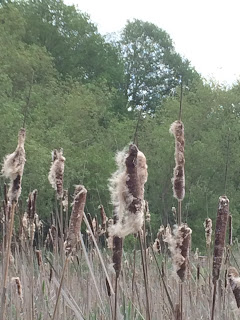Service Learning - Trashy Tuesday!
Last week, I participated in the Trashy Tuesday at the Edmonds Community College campus. The event lasted for two hours. The goal of the activity was to inform us of the impacts that trash and pollution have on our environment. We spent some time picking up trash around campus, trying our best to keep it clean.
This may not seem like the most exciting activity for service learning, but it's still important to the environment, especially the ocean. At the beginning, they gave us a brief presentation talking about how much of each type of trash is out there. Cigarette butts and plastics were the highest, which accurately reflects the types of things we found outside. It was really a shame to see how much of it
ended up in our oceans. It reminded me of the time in class when we talked about how the chances of sea turtles surviving to adulthood was decreased by humans. This came up during the presentation when they showed a picture of a sea turtle that was found with a plastic fork stuck in its nose. It's sad to think that they wouldn't be able to deal with that themselves. Sometimes, marine organisms even mistake trash (such as plastics) for food; they showed us a photo of a bird that had a stomach filled with garbage. It was a sad sight, so it's important to remind ourselves that we're not the only ones affected by pollution.
After the talk, we paired up, got some trash grabbers and bright green vests, and headed out to collect some litter. Thankfully, it was a nice day outside, so we were able to work without having to worry about rain. Like I said, cigarettes and plastics were the main things we picked up, and they had us keep a record of everything we found. Doing this activity gave me a new perspective on waste management. I'm already very careful about what I throw away and recycle, and I of course never litter. However, I can always be more mindful of the quantity of things that I throw away.
Here are some questions I came up with related to the activity:
1. How can we get people to reduce the amount of litter they accumulate?
2. Is there a way we can prevent so much pollution from reaching the oceans?
3. What are some ways we can prevent marine animals from getting harmed by litter?
4. What can you do to help improve trash problems (especially around campus)?
Contact at: Sam.lebrun@email.edcc.edu



Comments
Post a Comment